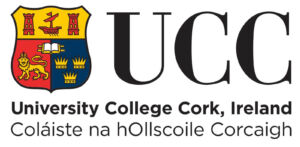MA in Music – Ethnomusicology
Key points
Ethnomusicology is the study of “people who make music” (Titon). It encompasses music from around the world, old and new, professional and amateur, sacred and secular, traditional and newly invented. A dynamic discipline, its key approaches include extended fieldwork-based approaches to understanding what people are doing and appreciating when they express themselves musically. Ethnomusicologists place a special place in learning through the formation of strong human relationships with members of musical communities and learning through their own personal involvement in music creation. This often humbling and revealing experience informs us as we build understandings, interpretations, and analyzes on those of the people we live and study with. In projects called applied ethnomusicology, we also contribute as recent cultural advocates or supporters.
Our groundbreaking one-year Master of Ethnomusicology offers a fresh and dynamic approach to the study of music at the graduate level in Ireland. It combines scholarship and performance in the study of a wide range of musical traditions from around the world. Course work includes personalized research training preparation, musical performance, history and theory of ethnomusicology, multidisciplinarity, performance studies, and ethnographic field research. Master’s degrees are completed by a research project, selected by the student, ranging from ethnographic dissertations to major performance and from film-making to creating world music materials for the classroom.
The Department of Music is internationally recognized as a center of excellence for the study of traditional Irish music and world music. Graduate students join a thriving research culture in our Department. Our academics and music professionals represent a model for innovative research in the 21st century. Committed to a diversity of academic traditions and forms of creativity, our staff is internationally recognized for their groundbreaking research, which is marked by their forward-thinking attitudes and diversity of coverage.
Program Structure
Our graduates work in areas such as Electronic Product Design, Electrical Services, Electrical Engineering, Control and Automation and Communications.
A sampling of our graduate destinations includes:
- ABB
- Agilent Technologies
- Amazon Web Services
- Anord Mardix
- Analog Devices
- Blueacre Technology
- CombiLift
- ControlSoft Automation
- ESB International
- Electricity Supply Board
- Facebook,
- Glen Dimplex Renewables
- Hanley Energy
- Hewlett Packard
- Intel
- Mercury Engineering
- Nikon Precision Europe
- NXP Semiconductors
- Realtime Technologies
Delivery of the Program
Course practices
All teaching is delivered in small group seminars, ensemble classes and tutorials, and individual lessons and supervision. You can expect eight to twelve hours of contact time with the class each week, depending on the ensembles studied, the concerts performed, and the frequency of supervision meetings.
Why choose this course
The program team is to be highly commended for providing comprehensive and varied training in Master’s Ethnomusicology. The program structure and teaching staff provide an excellent learning environment for students to develop knowledge, understanding, and skills. It is evident from high-quality student work and detailed feedback that teaching staff pay great attention and care to individual student interests and projects “(External Examiner, 2017).
Several key factors combine to make the UCC Master of Ethnomusicology the most popular course of its kind on the island of Ireland. The MSc is unique in Ireland for its emphasis on learning through performance and discussion and the practical application of these skills in the service of further research. We defend a totally contemporary model of ethnomusicology, totally open to applied research outside the academy and to knowledge of other disciplines, from folklore to anthropology and from sound studies to interpretation. It benefits from the intellectual and musical environment of a broad and diverse Music Department in which all music is treated as equally worthy of study and respect. The UCC Master’s Degree in Ethnomusicology is taught by a great
Career opportunities
Graduates of the Master of Ethnomusicology go on to pursue a wide range of careers in the creative arts, cultural industries, and the media. Many have successfully applied for PhDs in Ireland or abroad. Our graduates include professional musicians, academics, teachers, art managers, and NGO staff.
Admission requirements
You will have a second-class honors II degree in an elementary honors bachelor of arts (NFQ, level 8), or equivalent, in music or a related subject (eg, anthropology, folklore, cultural studies). Applicants with an appropriate professional equivalent (eg, senior professional musician, music media professionals) will also be considered under recognition of prior learning (RPL). All applicants will be required to attend an interview with members of the program team and may be required to pass a qualification test.
English requirements
All graduate applicants whose first language is not English must provide evidence of English language proficiency. Certain tests (eg, IELTS, TOEFL, and Pearson PTE) have a three-year time limit on their validity and will apply. English language tests must be taken no more than three years prior to the start of a program.
Please note that Secure English Language Test (SELT) scores must be obtained in a single session of the corresponding qualification (for example, IELTS and TOEFL). We will not accept a combination of individual component scores from multiple tests.
Applicants who are nationals of a country that, according to the UCC, is predominantly English-speaking, or who have a degree or equivalent qualification that was taught in a country that is considered predominantly English-speaking, will normally be assumed to have met the language requirements of the UCC. However, in some circumstances, applicants may be required to present evidence of an English language qualification to satisfy the college program entry requirements.
Request your quote
An advisor will contact you by phone and email within the following hours


